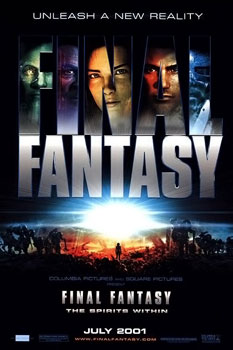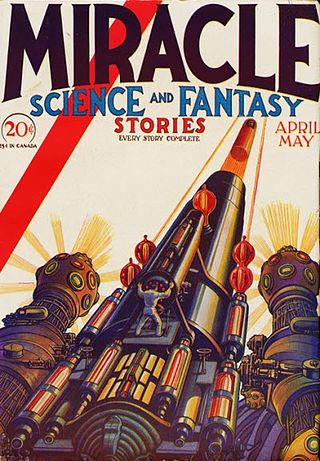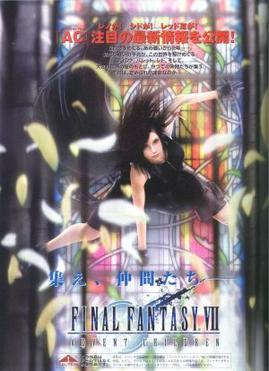| Fantasy films |
|---|
 |
| By decade |
A list of fantasy film s released before the 1930s.
| Fantasy films |
|---|
 |
| By decade |
A list of fantasy film s released before the 1930s.
Fantasy comedy or comic fantasy is a subgenre of fantasy that is primarily humorous in intent and tone. Typically set in imaginary worlds, fantasy comedy often involves puns on, and parodies of, other works of fantasy.
Final Fantasy is a fantasy anthology media franchise created by Hironobu Sakaguchi which is owned and developed and published by Square Enix. The franchise centers on a series of fantasy role-playing video games. The first game in the series was released in 1987, with 16 numbered main entries having been released to date.

Final Fantasy: The Spirits Within is a 2001 computer-animated science fiction film directed by Hironobu Sakaguchi, creator of the Final Fantasy franchise. It was the first photorealistic computer-animated feature film and the most expensive video game-inspired film until the release of Prince of Persia: The Sands of Time in 2010. The film stars the voices of Ming-Na Wen, Alec Baldwin, Donald Sutherland, James Woods, Ving Rhames, Peri Gilpin, and Steve Buscemi, and follows scientists Aki Ross and Doctor Sid in their efforts to free a post-apocalyptic Earth from the Phantoms, a mysterious, deadly alien race who has driven the remnants of humanity into "barrier cities". Aki and Sid must fight against General Hein, who wants to use more violent means to end the conflict.

Fantasy films are films that belong to the fantasy genre with fantastic themes, usually magic, supernatural events, mythology, folklore, or exotic fantasy worlds. The genre is considered a form of speculative fiction alongside science fiction films and horror films, although the genres do overlap. Fantasy films often have an element of magic, myth, wonder, escapism, and the extraordinary.

Horror is a genre of fiction that is intended to disturb, frighten or scare. Horror is often divided into the sub-genres of psychological horror and supernatural horror, which are in the realm of speculative fiction. Literary historian J. A. Cuddon, in 1984, defined the horror story as "a piece of fiction in prose of variable length... which shocks, or even frightens the reader, or perhaps induces a feeling of repulsion or loathing". Horror intends to create an eerie and frightening atmosphere for the reader. Often the central menace of a work of horror fiction can be interpreted as a metaphor for larger fears of a society.

Science fantasy is a hybrid genre within speculative fiction that simultaneously draws upon or combines tropes and elements from both science fiction and fantasy. In a conventional science fiction story, the world is presented as being scientifically logical, while a conventional fantasy story contains mostly supernatural and artistic elements that disregard the scientific laws of the real world. The world of science fantasy, however, is laid out to be scientifically logical and often supplied with hard science-like explanations of any supernatural elements.

Fantasy Island is an American fantasy drama television series created by Gene Levitt. It aired on ABC from 1977 to 1984. The series starred Ricardo Montalbán as the mysterious Mr. Roarke and Hervé Villechaize as his assistant, Tattoo. Guests were granted so-called "fantasies" on the island for a price.

List of fantasy films is a chronological listing of films in the fantasy genre. Fantasy television programs, including made for TV movies and miniseries, should be listed at List of fantasy television programs.

Sephiroth is a character in the Final Fantasy series and the main antagonist of Final Fantasy VII developed by Square. A former soldier of the megacorporation Shinra, he possesses superhuman physiology as a result of an experiment in which Shinra injected him with cells from the extraterrestrial lifeform Jenova when he was still a fetus. Upon discovering this, Sephiroth becomes consumed by rage and decides to take control of the Planet, while Cloud and the game's other protagonists attempt to stop him. Sephiroth's background and role in the story are expanded upon in the Compilation of Final Fantasy VII. Additionally, he appears as a guest character in other video games and media, such as a recurring boss in the Kingdom Hearts series and as a playable character in Super Smash Bros. Ultimate.

Final Fantasy VII: Advent Children is a 2005 Japanese computer-animated film directed by Tetsuya Nomura, written by Kazushige Nojima, and produced by Yoshinori Kitase and Shinji Hashimoto. Developed by Visual Works and Square Enix, Advent Children is part of the Compilation of Final Fantasy VII series of media, which is based in the world and continuity of the 1997 role-playing video game Final Fantasy VII. Final Fantasy VII: Advent Children was released on DVD and Universal Media Discs with Japanese voice acting in Japan on September 14, 2005, and on April 25, 2006 with English voice acting in North America and the UK.

An adventure film is a form of adventure fiction, and is a genre of film. Subgenres of adventure films include swashbuckler films, pirate films, and survival films. Adventure films may also be combined with other film genres such as action, comedy, drama, fantasy, science fiction, family, horror, war, or the medium of animation.
Dark fantasy is a subgenre of fantasy literary, artistic, and cinematic works that incorporate disturbing and frightening themes of fantasy. It often combines fantasy with elements of horror or has a gloomy dark tone or an atmosphere of horror and dread.
Supernatural fiction or supernaturalist fiction is a genre of speculative fiction that exploits or is centered on supernatural themes, often contradicting naturalist assumptions of the real world.

The Sitges Film Festival and also translated as Sitges International Fantastic Film Festival of Catalonia and originally the International Week of Fantasy and Horror Movies, is an annual film festival held in Sitges, Catalonia, Spain. It specialises in fantasy and horror films, of which it is considered one of the world's foremost international festivals. Established in 1968, the festival takes place every year, usually in early October.
The British Fantasy Awards (BFA) are awarded annually by the British Fantasy Society (BFS), first in 1976. Prior to that they were known as The August Derleth Fantasy Awards. First awarded in 1972 only for novels, the number of award categories increased and in 1976 the BFS renamed them collectively to the British Fantasy Awards. As of 2023 the award categories are:
Fantasy television is a genre of television programming featuring elements of the fantastic, often including magic, supernatural forces, or exotic fantasy worlds. Fantasy television programs are often based on tales from mythology and folklore, or are adapted from fantasy stories in other media. The boundaries of fantasy television often overlap with science fiction and horror but also realistic fiction.

Fantasy is a genre of speculative fiction involving magical elements, typically set in a fictional universe and usually inspired by mythology or folklore. The term "fantasy" can also be used to describe a "work of this genre", usually literary.
The Balrog Awards were a set of awards given annually from 1979 to 1985 for the best works and achievements of speculative fiction in the previous year. The awards were named after the balrog, a fictional creature from J. R. R. Tolkien's Middle-earth legendarium. The awards were originally announced by editor Jonathan Bacon in Issue #15 of Fantasy Crossroads and presented at the Fool-Con II convention on April Fool's Day, 1979 at Johnson County Community College, Kansas. The awards were never taken seriously and are often referred to, tongue-in-cheek, as the "coveted Balrog Awards".

The Saturn Awards are American awards presented annually by the Academy of Science Fiction, Fantasy and Horror Films. The awards were created to honor science fiction, fantasy, and horror in film, but have since grown to reward other films belonging to genre fiction, as well as television and home media releases. The Saturn Awards were created in 1973 and were originally referred to as Golden Scrolls.

Kingsglaive: Final Fantasy XV is a 2016 Japanese animated fantasy film directed by Takeshi Nozue and scripted by Takashi Hasegawa from a story by Kazushige Nojima and Saori Itamuro. Developed primarily by Square Enix's exclusive CGI studio Visual Works, Kingsglaive is based on the setting and story of the video game Final Fantasy XV, which is thematically connected to the Fabula Nova Crystallis subseries. Kingsglaive: Final Fantasy XV was released theatrically in July 2016 in Japan by Aniplex, and received a limited theatrical run in August in North America by Stage 6 Films. Digital and physical home video versions were released three months later in October, and the film was bundled with different editions of Final Fantasy XV alongside Brotherhood: Final Fantasy XV.